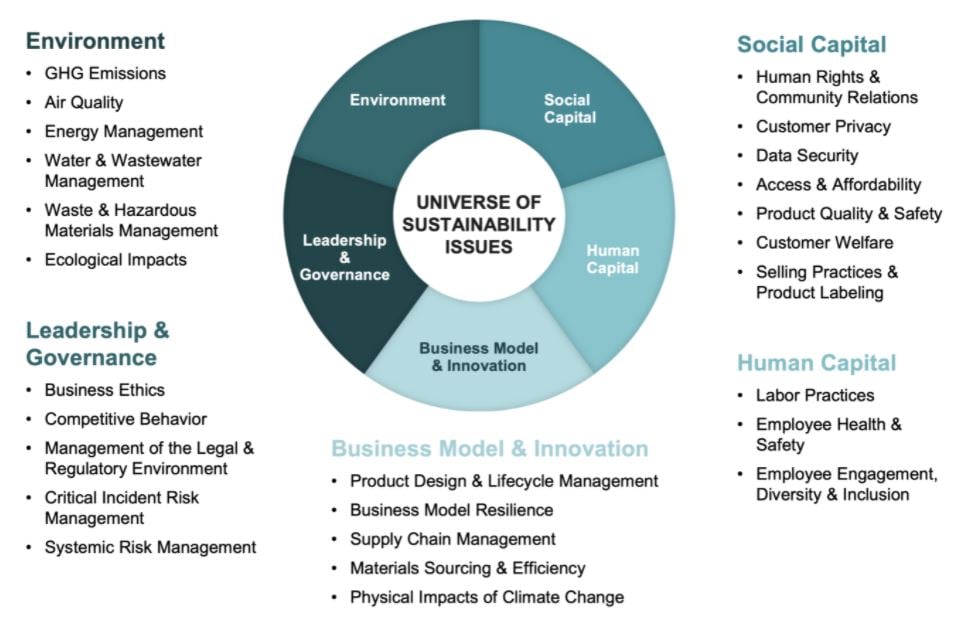When it comes to making investment decisions, shouldn’t you have all the information available? Not knowing about ESG reporting standards could mean missing out on critical data that could affect your decision-making.
We’ll discuss what they are, why companies need to report on their environmental, social, and governance performance using these guidelines, and how investors can use this information to make better-informed decisions.
Table of Contents
What Are ESG Reporting Standards?
ESG reporting standards are a set of guidelines that companies can use to report their environmental, social, and governance (ESG) performance.
While there is no one-size-fits-all approach to ESG reporting, these standards can provide companies with a framework for disclosures.
There are a number of benefits to using ESG reporting standards.
First, they can help companies to better understand and manage their ESG risks and opportunities.
Second, they can provide investors with the information they need to make informed investment decisions.
Finally, they can help to build trust and confidence in the capital markets.
While ESG reporting standards are not mandatory, they are becoming increasingly popular. In fact, a growing number of institutional investors are using them to evaluate companies.
For example, BlackRock, the world’s largest asset manager, has said that it will start to use ESG factors in its investment decisions. If you’re a company considering ESG reporting, there are a few things to keep in mind.
First, choose a standard that is relevant to your business and aligned with your ESG strategy. Second, make sure you have the necessary data and systems in place to support your disclosures.
Finally, consider engaging with an external service provider to help you with the reporting process.
ESG reporting standards offer a number of benefits for companies and investors. By using them, you can improve your understanding of ESG risks and opportunities, and provide investors with the information they need to make informed investment decisions.
Why Companies Need to Report Their ESG Performance
As more and more investors are looking to put their money into companies that align with their values, it’s becoming increasingly important for companies to report on their environmental, social, and governance (ESG) performance.
ESG reporting helps investors understand a company’s impact on critical issues like climate change, human rights, and corruption.
There are a number of reasons why companies need to report on their ESG performance.
1. Attract and Retain Investors
As more and more investors are looking to invest in companies that align with their values, ESG reporting is becoming increasingly important.
ESG reporting helps investors understand a company’s impact on critical issues like climate change, human rights, and corruption.
2. Manage Risk
ESG reporting can help companies identify and manage risk. For example, a company that is not adequately managing its environmental impact could be at risk of regulatory action or reputational damage.
3. Improve Performance
ESG reporting can help companies improve their performance on critical issues. For example, a company that is not adequately managing its environmental impact could improve its performance by reducing its emissions.
4. Meet Stakeholder Expectations
Stakeholders, such as employees, customers, and suppliers, are increasingly expecting companies to report on their ESG performance. Reporting helps companies communicate their progress on critical issues to stakeholders.
5. Comply With Regulations
In some jurisdictions, companies are required to report on their ESG performance. For example, the EU Non-Financial Reporting Directive requires large companies to report on their environmental and social performance.
How Investors Can Use ESG Reporting Data When Making Decisions
As more and more companies are coming out with sustainability reports, it’s becoming easier for investors to find out which companies are doing their part to protect the environment and society.
This information can be useful when making investment decisions, as it can help you identify which companies are likely to have a positive impact on the world.
One way to find out which companies are reporting their ESG performance is to look for the Global Reporting Initiative (GRI) logo on their website or annual report.
The GRI is the most widely used reporting framework in the world and it provides guidance on what information should be included in a sustainability report.
If a company is not reporting its ESG performance, that doesn’t necessarily mean it’s not doing anything good. However, it may be more difficult to assess the company’s impact on society and the environment. For this reason, it’s often best to invest in companies that are transparent about their ESG performance.
Challenges of Implementing ESG Reporting Standards
There are many challenges that exist with implementing ESG reporting standards. For one, these standards are constantly changing and evolving, which can make it difficult for companies to keep up.
Additionally, these standards can be difficult to understand and interpret, which can make it challenging for companies to produce accurate and reliable reports.
Finally, there is a lack of agreement on how these standards should be applied, which can create confusion and inconsistency in the reporting process.
 (Source)
(Source)
Benefits Beyond Financial Returns
When it comes to investing, many people focus solely on financial returns. However, there are other benefits that can be just as important, if not more so.
One of these is ESG reporting standards.
By investing in companies that are doing well in terms of their environmental and social impact, you can help make a difference in the world.
And, by supporting good governance, you can help ensure that companies are run in a way that benefits all stakeholders, not just shareholders.
It could make all the difference in the world.
FAQs About ESG Reporting Standards
Is there a standard for ESG reporting?
Global Reporting Initiative (GRI) Standards, Task Force on Climate-related Financial Disclosures (TCFD), and SASB Standards are three of the most common ESG standards and frameworks.
GRI standards enable companies to report on their economic, environmental, and social impacts.
What is ESG reporting framework?
ESG regulations lay out the standards that a company must meet in order to operate. These standards are communicated to shareholders through regular reports.
To stay compliant with the law, businesses are under pressure to implement strong environmental, social, and governance (ESG) standards and practices.
What ESG reporting is mandatory?
While the SEC currently does not require environmental, social, and governance (ESG) disclosures, this may change in 2022 after the agency proposed that public corporations disclose their climate change risks.
Conclusion
ESG reporting standards are an important way for companies to communicate their environmental, social, and governance performance to investors. By providing this information, investors can make more informed decisions about where to allocate their capital.
While there are some challenges associated with implementing these standards, the benefits far outweigh the costs.
{“@context”:”https:\/\/schema.org”,”@type”:”FAQPage”,”mainEntity”:[{“@type”:”Question”,”name”:”Is there a standard for ESG reporting?”,”acceptedAnswer”:{“@type”:”Answer”,”text”:”
Global Reporting Initiative (GRI) Standards, Task Force on Climate-related Financial Disclosures (TCFD), and SASB Standards are three of the most common ESG standards and frameworks.
GRI standards enable companies to report on their economic, environmental, and social impacts. “}},{“@type”:”Question”,”name”:”What is ESG reporting framework?”,”acceptedAnswer”:{“@type”:”Answer”,”text”:”
ESG regulations lay out the standards that a company must meet in order to operate. These standards are communicated to shareholders through regular reports.
To stay compliant with the law, businesses are under pressure to implement strong environmental, social, and governance (ESG) standards and practices. “}},{“@type”:”Question”,”name”:”What ESG reporting is mandatory?”,”acceptedAnswer”:{“@type”:”Answer”,”text”:”
While the SEC currently does not require environmental, social, and governance (ESG) disclosures, this may change in 2022 after the agency proposed that public corporations disclose their climate change risks. “}}]}





